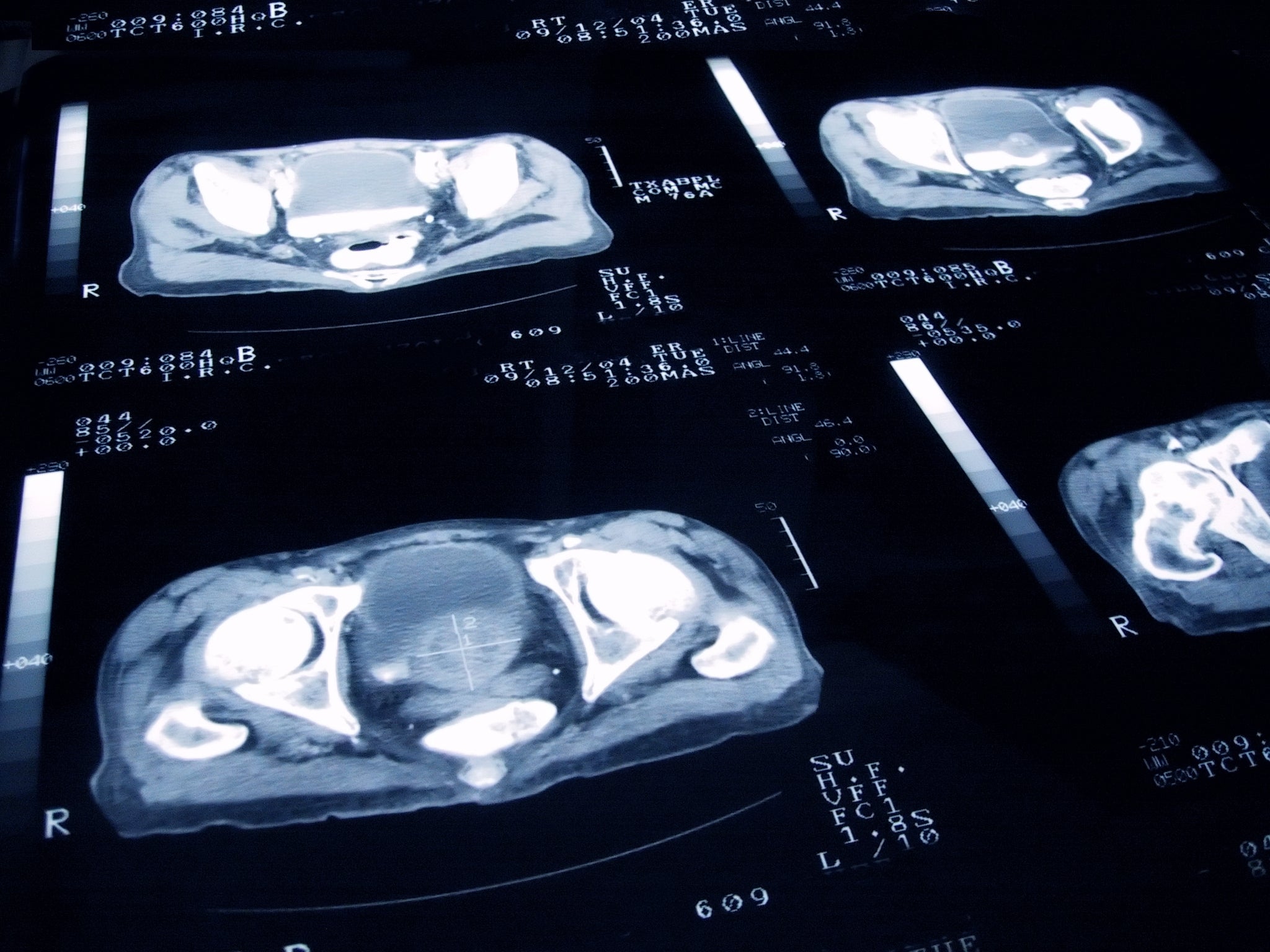
Colin McFarlane’s announcement that he has been diagnosed with prostate cancer is the latest reminder to millions of the importance of being on the lookout for this pernicious disease and its first symptoms.
The Dark Knight star, 61, said that he has been regularly testing for cancer after a fellow actor who was treated for it 17 years ago told him about its prevalence among Black men.
McFarlane, also known for his roles in Doctor Who and Outlander, explained that both he and his brother found out about the cancer after taking a prostate-specific antigen (PSA) test, which can be given to men without symptoms after a consultation with a doctor.
He is far from the only celebrity to have been diagnosed with the cancer. Last year, Duran Duran guitarist Andy Taylor announced that he had discovered the disease in late August, whilst musician and TV presenter Jools Holland also received a diagnosis after a routine blood test in 2014.
Also in August, former BBC Breakfast host Bill Turnbull died of the same condition at the age of 66. He was diagnosed in 2017 and took a leave of absence from his Classic FM radio show in October 2021 to focus on his health.
In a 2018 interview with The Radio Times, Turnbull said he asked his doctor to stop treating him with chemotherapy after eight rounds, saying he “couldn’t bear it any longer”.
For McFarlane, doctors were able to catch the disease in its very early stages because he tests for it regularly. He will not require treatment but will be “regularly monitored with PSA blood tests every three months and an MRI (or magnetic resonance imaging scan) once a year”.
“As it’s a very slow-moving cancer I am in the best possible position to ascertain what treatment I would need in the future if that were ever deemed necessary, and currently that scenario is a long way off,” he said.

“It’s men who take no action and don’t know anything about their prostate health that are at the greatest risk.”
Prostate cancer is the most common form of cancer among men in the UK, affecting approximately one in eight men during their lifetime.
While the condition is more likely to affect men over the age of 50, it can be diagnosed at a younger age.
From symptoms to treatment, here's everything you need to know about prostate cancer.
What is prostate cancer?
Prostate cancer is a cancer that occurs in the prostate gland, a small gland located at the base of the bladder.
The main function of the prostate gland, a male reproductive organ, is to secrete prostate fluid. Prostate fluid mixes with sperm to create semen.
The prostate gland is about the size of a walnut, but enlarges as men age.

It surrounds the first part of the urethra, the tube that carries urine and semen.
When prostate cancer develops in the prostate gland, this usually occurs in the outer gland cells of the prostate, Cancer Research UK states. These cells are called acinar adenocarcinomas.
Cancer occurs when abnormal cells begin to divide and grow uncontrollably.
According to Cancer Research UK, the majority of cases of prostate cancer grow slowly and do not usually spread to other parts of the body.
When prostate cancer has spread to another part of the body, it becomes known as advanced prostate cancer.
What are the symptoms?
Symptoms of prostate cancer may include needing to urinate more frequently; having to rush to the toilet; straining to urinate; feeling as though your bladder has not fully emptied while going to the toilet; and blood in urine or semen, the NHS outlines.
The NHS adds that these symptoms may not necessarily be indicative of prostate cancer.
Older men may experience similar symptoms due to prostate enlargement, which is a non-cancerous condition.
Signs that prostate cancer has spread to other areas of the body may include back, hip or pelvis pain; erectile dysfunction; blood in urine or semen; and unexplained weight loss, Prostate Cancer UK states.
For more information about prostate cancer symptoms, visit the Prostate Cancer UK website here.
What are the causes?
While it is not known what causes prostate cancer, several factors may increase one's risk of developing the condition.
These include being over the age of 50; whether one has a brother or father who developed prostate cancer before turning 60; being overweight; and following an unhealthy diet, the NHS states.
Those of African or African-Caribbean descent may also be at greater risk of being diagnosed with the condition.
How common is it?
Prostate cancer is the most common form of cancer among men in the UK, Prostate Cancer UK states.
Around 47,500 men across the UK are diagnosed with prostate cancer on an annual basis.
Approximately 35 per cent of new cases of prostate cancer every year are among men aged 75 and over.
Prostate cancer can affect anyone with a prostate gland, which can include men, transgender and non-binary people.
How can it be treated?
Some diagnosed with prostate cancer will not require any treatment at all, the NHS states.
A person's treatment may depend on whether their prostate cancer is localised in the prostate gland or has spread to other parts of the body.
The NHS explains that a patient with cancer should be cared for by a team of specialists, called a multidisciplinary team.
This team of medical professionals may include oncologists, radiographers and specialist nurses, among others.
The NHS adds that treatment for prostate cancer is undertaken to either cure the disease, or control symptoms so that they do not shorten a patient's life expectancy.
Some older men who are diagnosed with prostate cancer may be advised to carry out “watchful waiting“, which is when they keep a close eye to see whether or not they develop any progressive cancer symptoms.
They may also be told to do “active surveillance”, which involves undergoing tests such as MRI scans and biopsies while avoiding other treatments deemed “unnecessary”.
Other treatments that patients diagnosed with prostate cancer may undergo include radical prostatectomy, which is the surgical removal of the prostate gland; radiotherapy; hormone therapy; and chemotherapy.
If a person's prostate cancer has become too advanced, then it may not be able to be cured.
However, treatments such as radiotherapy, hormone treatment and chemotherapy may slow down its progression.
For more information about prostate cancer treatment options, visit the NHS website here.
For all the latest health news, click here.







